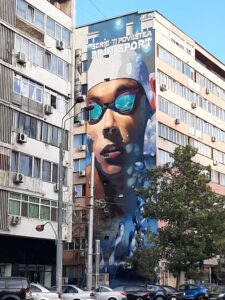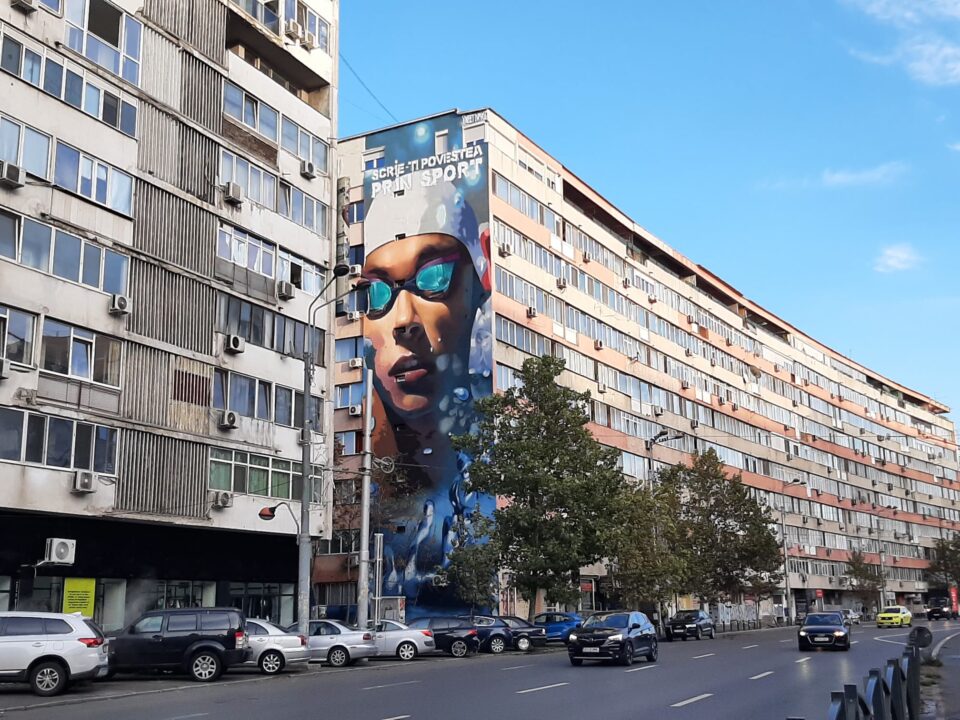There was a moment during the Short Course European Swimming Championships when my Apple Watch started vibrating to alert me that the place I was in was exceeding the decibel level considered safe for health. It wasn’t a scream or a single high pitch; it was a deep noise that seemed to come more from the building’s foundations than its interior. David Popovici entered the pool for the semifinals of the men’s 200 freestyle, and the crowd reacted, shaking the walls.
This happened again the next day when the hometown hero narrowly missed the podium, securing redemption 24 hours later with a bronze in the 100. The noise, however, is something we are accustomed to, in the pool. Many athletes are loved by the audience, and their names announced by the speaker are always followed by applause and cheers.
The difference, in this case, lies in what happened afterward. After the race, after the interviews, after the award ceremony, David returned to the pool deck with a simple message: “No press, only children.” A large group of children had gathered at the barriers limiting the spectator area. Not just for photos, not just autographs, but also for a few words, a question done from the champion to the child who dreams of becoming one, and not the other way around like we used to see. There is something different in the Romanian people’s love for David Popovici compared to what I have seen until now. There is a mixture of hope and gratitude. Something similar to a social commitment, such as when he donated his world gold medal to subsidize free genetic tests for children diagnosed with cancer.
Romania wins Olympic gold medals (90 of them in total, 3 in swimming), but not often in the modern era. They won one in Rio and one more in Tokyo. But they remember an era where they were among the great nations at the Sumer Olympics. In 1984, they won 20 gold medals. In 2000 in Sydney they won 11. There is a national sense of what it means for the country to produce Olympic champions, but a shortage that has left the population wonting for the taste of that former glory.
More than everything there is the desire of a 19 million people country to see its colors raised high by an athlete recognized worldwide for his work ethic, articulate speech, maturity, and a face that captivates.

Popovici murals in Bucharest courtesy of Catrinel Oprisiu
That face, the one which now overlooks one of the busiest corner in all of Bucharest, at 35 Stefan cel Mare Street. A group of artists, the Sweet Damage Crew, decided to dedicate a 300-square-meter mural to the face that best represents Romania and its capital during the Outline Street Art Festival. It took 10 days and eight hands to complete the work. The message it contains was suggested by David himself: “Write your story through sports.” He is writing his story, and perhaps the one of his nation too. Not just because he broke the world record in the 100 freestyle at 18, or rather not just for this reason. But also for taking on his shoulders the expectations of a proud population eager to give to this generation a name to venerate after Nadia Comaneci.
“I try to take a different route when I have to cross the city; it embarrasses me to see my face that big,” David commented. But he doesn’t seem like someone who easily gets embarrassed; he seems like an athlete who has learned the weight of words and the power of messages, face includes.

I was in the stands in Otopeni and the atmosphere was really great. Warm, supportive and loud, but not intense.
For me, there were two particular moments that I will remember for a long time. First, the crowd’s reaction after the 200m free- when David came fourth in (arguably) his best event. There were no signs of disappointment in the arena. On the contrary, people were standing up, cheering for him loudly. And then, the seconds just before the start of the 100m free race, with the whole crowd chanting David’s name. It was chilling, in the best possible way, and I like to think that it gave him an extra boost to get that medal.
He is really… Read more »
It can be difficult to PR when you are the world record holder, but I think he can do it. He is taking a more patient approach to save the biggest performances for when it counts the most.
Fantastic!
This is the kind of recognition we’ve always wanted for swimming superstars.
I think it looks amazing! How do artists do it?!
A great athlete and a sensational human being.
Here in Romania, he is by far the most recognisable sports person.